The debate over the Catholicism 'trend'
Is Catholicism the biggest trend of 2022 — or is there nothing to see here?

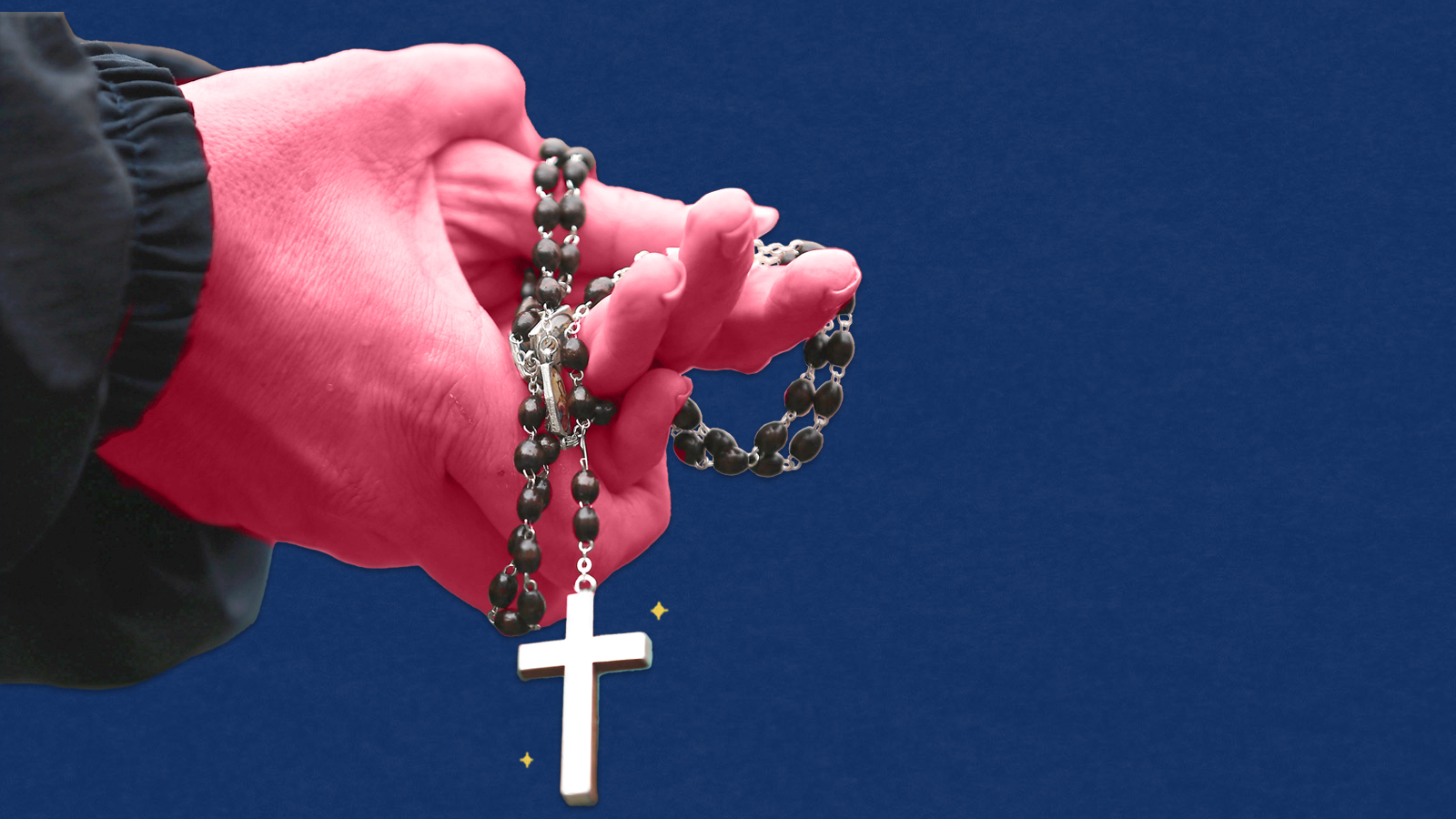
A free daily email with the biggest news stories of the day – and the best features from TheWeek.com
You are now subscribed
Your newsletter sign-up was successful
A recent New York Times headline proclaimed that "New York's Hottest Club is the Catholic Church." Written by Julia Yost, a senior editor at the conservative Christian intellectual journal First Things, the essay pointed readers' attention to the Manhattan neighborhood known as "Dimes Square," where a 2,000-year-old religion is supposedly the hip new trend. "Reactionary motifs are chic: Trump hats and 'tradwife' frocks, monarchist and anti-feminist sentiments. Perhaps the ultimate expression of this contrarian aesthetic is its embrace of Catholicism," Yost wrote.
Key figures include Honor Levy, who hosts the podcast "Wet Brain" and whose fiction has been published in The New Yorker. Levy "recently converted to Catholicism and lets you know when she has unconfessed mortal sins on her conscience," Yost writes. Another is Dasha Nekrasova, "a Catholic revert and actress with a recurring role on HBO's Succession, who co-hosts "the scene's most popular podcast, Red Scare."
But are these hip urbanite converts sincere? Are they just role-playing? Or are they so many layers deep in irony that they themselves aren't sure?
The Week
Escape your echo chamber. Get the facts behind the news, plus analysis from multiple perspectives.

Sign up for The Week's Free Newsletters
From our morning news briefing to a weekly Good News Newsletter, get the best of The Week delivered directly to your inbox.
From our morning news briefing to a weekly Good News Newsletter, get the best of The Week delivered directly to your inbox.
Are the converts just posers?
Yost concedes that this trendy Catholicism "may be partly a pose" but insists that Dimes Square "is not the first social scene whose Catholicism was dismissed as insincere." If you think about it, they're not so different from Oscar Wilde and his fellow fin de siècle Decadents, many of whom crossed the Tiber.
In the realm of fashion, Catholic iconography and "trad" styles function as "reservoirs of the 'unproblematic exotic,'" Biz Sherbert wrote at i-D. Appropriating Indigenous spirituality is out, but the Church of Rome won't mind if you borrow its look. Sherbert suggests that the trend has some of its roots in the "deviant Catholic schoolgirl" style of the 1990s, but that this "reads more like a salvaging of innocence than an iconoclastic subversion of it." Of course, there's still plenty of subversion going on. Take, for example, the fashion label Praying — famous for its white string bikini that labels the goods "Father," "Son," and "Holy Spirit."
Niall Gooch, who converted to Catholicism in 2006, joked in UnHerd that he had never been "at the cutting edge of fashion" before. "We should probably not put too much stock in this supposed mini-revival," Gooch continued, noting that "full-blooded Catholicism is a demanding way of life, not merely a means of sticking up two fingers at a suffocating liberal consensus." Even so, Gooch remained cautiously optimistic. Christianity, he argued, offers a potent antidote for those "alienated from a society which manages to be at once both insistently libertine, and cruelly unforgiving."
The rise of the New Right
Yost's essay drew heavily on James Pogue's April profile of the "New Right." His far-ranging piece touched on an interconnected web of figures including Senate candidates Blake Masters and J.D. Vance, political theorist Curtis Yarvin, billionaire Peter Thiel, Trumpian film director Amanda Milius, and Compact founder Sohrab Ahmari.
A free daily email with the biggest news stories of the day – and the best features from TheWeek.com
Pogue observed that "New Right-ish" politics have become "quietly edgy and cool in new tech outposts like Miami and Austin, and in downtown Manhattan." In these hip enclaves, "signifiers like a demure cross necklace have become markers of a transgressive chic" and — as one of Pogue's friends told him — "casual sex is out." The New Right isn't exclusively Catholic, but Vance and Ahmari are both converts and Pogue writes that "[p]eople are converting to Catholicism" in the Manhattan New Right scene.
Just days after Pogue's profile dropped, New York Times opinion columnist Michelle Goldberg published a piece headlined "The Awful Advent of Reactionary Chic." Goldberg doesn't address the connection between the New Right and Catholicism, but she does suggest that the entire fad will come to a screeching halt next time the right takes power nationally. "Eventually, an avant-garde flirtation with reaction will collide with the brutish, philistine reality of conservative rule," she wrote.
Goldberg also argued that the reactionary chic scene "doesn't have a coherent worldview" and is united by nothing more than anti-wokeness and "a desire to épater le bourgeois."
There's no scene to be seen
In response to Yost's claim that Dimes Square's turn toward Rome signals "a culture-wide shift," The Washington Post's Taylor Lorenz tweeted, "No, it literally doesn't and, in fact, it's the exact opposite. This entire 'scene' is composed of maybe 2,000 people with *zero broader cultural relevance* and the media needs to stop falling for it."
Molly Olmstead argued in Slate that the Times was irresponsible to publish a piece treating reactionary Catholicism as a fun, innocuous trend. Traditionalist Catholicism, Olmstead writes, "attracts those who like to post winkingly about the Crusades" and who campaign "for the stripping of rights from women and queer people." At The Atlantic, Daniel Penneton wrote that, for right-wing Catholics, "rosary beads have been woven into a conspiratorial politics and absolutist gun culture." Both Olmstead and Penneton noted that these Catholic reactionaries are far outside the mainstream of the post-Vatican II American church.
Atheist Hemant Mehta of the explicitly non-religious publication OnlySky went further, attacking not just traditionalists in the church but the Catholic Church itself as an institution "where child sexual abuse has been a rampant problem for decades ... where abortion rights and the existence of transgender people are both denied, where same-sex marriage is considered immoral, where financial scandals never cease," and so on. "[T]raditional 'values,'" he wrote, "are out of date for good reason."
But what do actual Catholics have to say?
Some Catholics were also skeptical of the trend. Yost herself suggested that plenty of these fashionable Dimes Square Catholics are likely to fall away as the culture war heats up following the fall of Roe v. Wade (1973). "Real-world events will confront young urban Catholics with the full implications of Catholic doctrine, making it hard to view the rosary as a fashion statement. Over time, these developments will sort the converts from the LARPers," she wrote, using the acronym for "live-action role-playing."
Others were offended at the idea that their religion was being treated as a costume. Several commenters on Praying's Instagram page suggested that the label wouldn't get away with appropriating (and sexualizing) the symbolism of any other religion in this way — the classic Piss Christ vs. cartoons of Muhammad debate.
And speaking of Muhammad, Sarah Hagi wrote at Gawker that if the Dimes Square crowd really wanted to be subversive, they'd embrace Islam. "As much as I respect Catholicism, you can't pretend that Lent, 40 days where you decide to not eat chocolate or whatever because it's your vice, is not just a baby version of the 30 days a year I spend starving myself during Ramadan," she wrote. "Catholicism is for the weak. Call me when you're ready for Hajj."
Grayson Quay was the weekend editor at TheWeek.com. His writing has also been published in National Review, the Pittsburgh Post-Gazette, Modern Age, The American Conservative, The Spectator World, and other outlets. Grayson earned his M.A. from Georgetown University in 2019.
-
 Gwen John: Strange Beauties – a ‘superb’ retrospective
Gwen John: Strange Beauties – a ‘superb’ retrospectiveThe Week Recommends ‘Daunting’ show at the National Museum Cardiff plunges viewers into the Welsh artist’s ‘spiritual, austere existence’
-
 Should the EU and UK join Trump’s board of peace?
Should the EU and UK join Trump’s board of peace?Today's Big Question After rushing to praise the initiative European leaders are now alarmed
-
 Antonia Romeo and Whitehall’s women problem
Antonia Romeo and Whitehall’s women problemThe Explainer Before her appointment as cabinet secretary, commentators said hostile briefings and vetting concerns were evidence of ‘sexist, misogynistic culture’ in No. 10
-
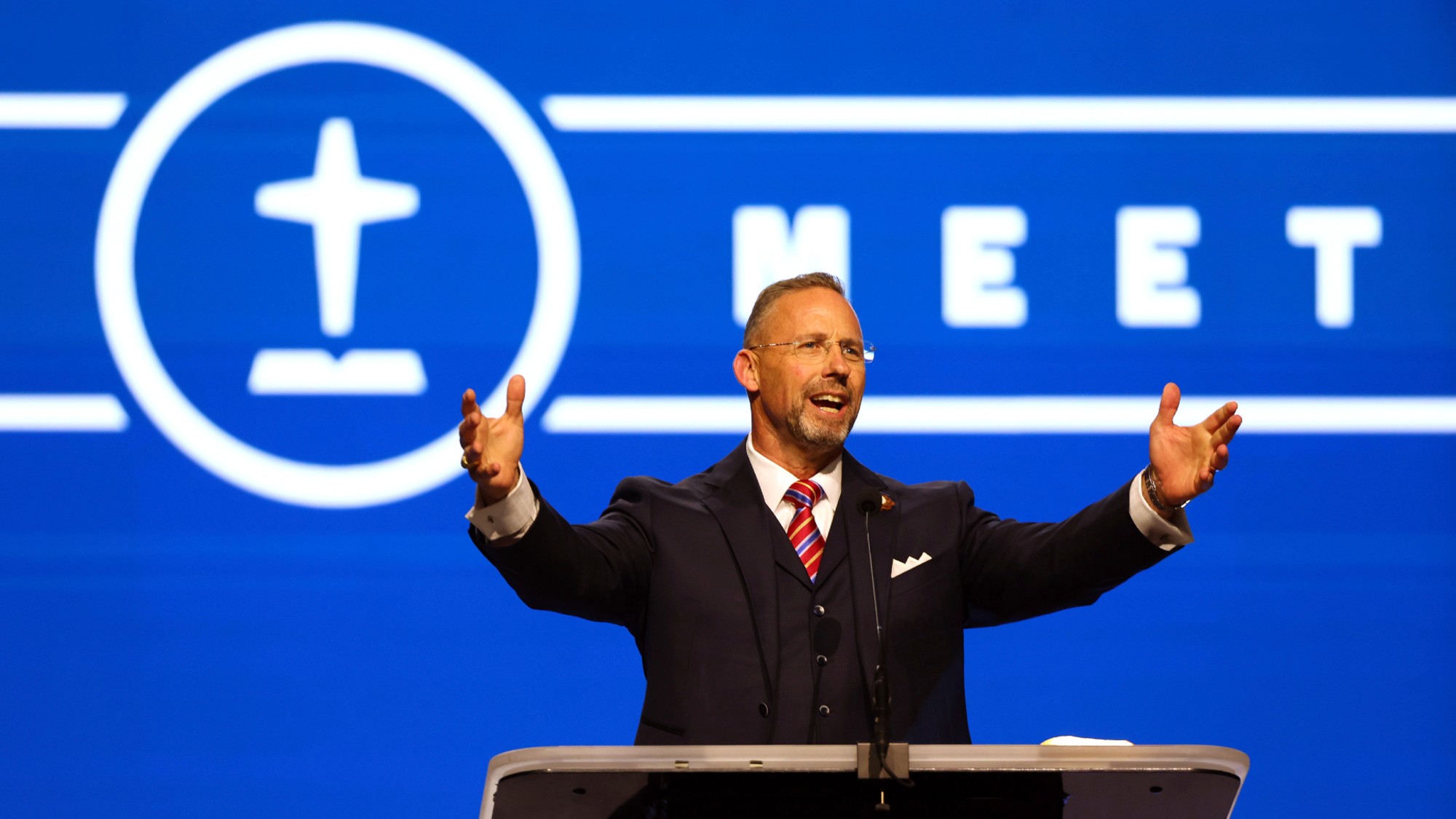 Southern Baptists lay out their political road map
Southern Baptists lay out their political road mapThe Explainer The Southern Baptist Convention held major votes on same-sex marriage, pornography and more
-
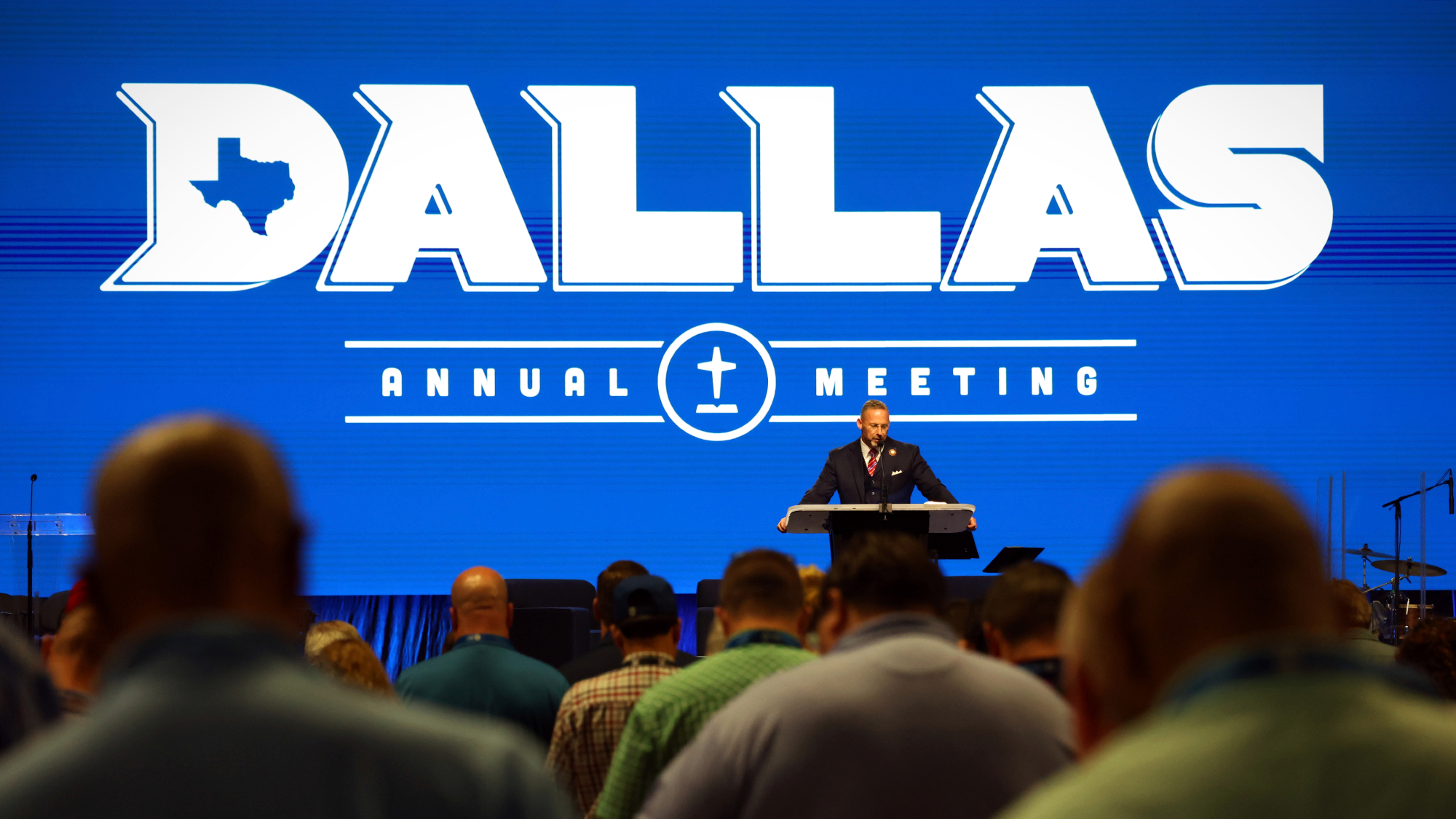 Southern Baptists endorse gay marriage ban
Southern Baptists endorse gay marriage banSpeed Read The largest US Protestant denomination voted to ban same-sex marriage and pornography at their national meeting
-
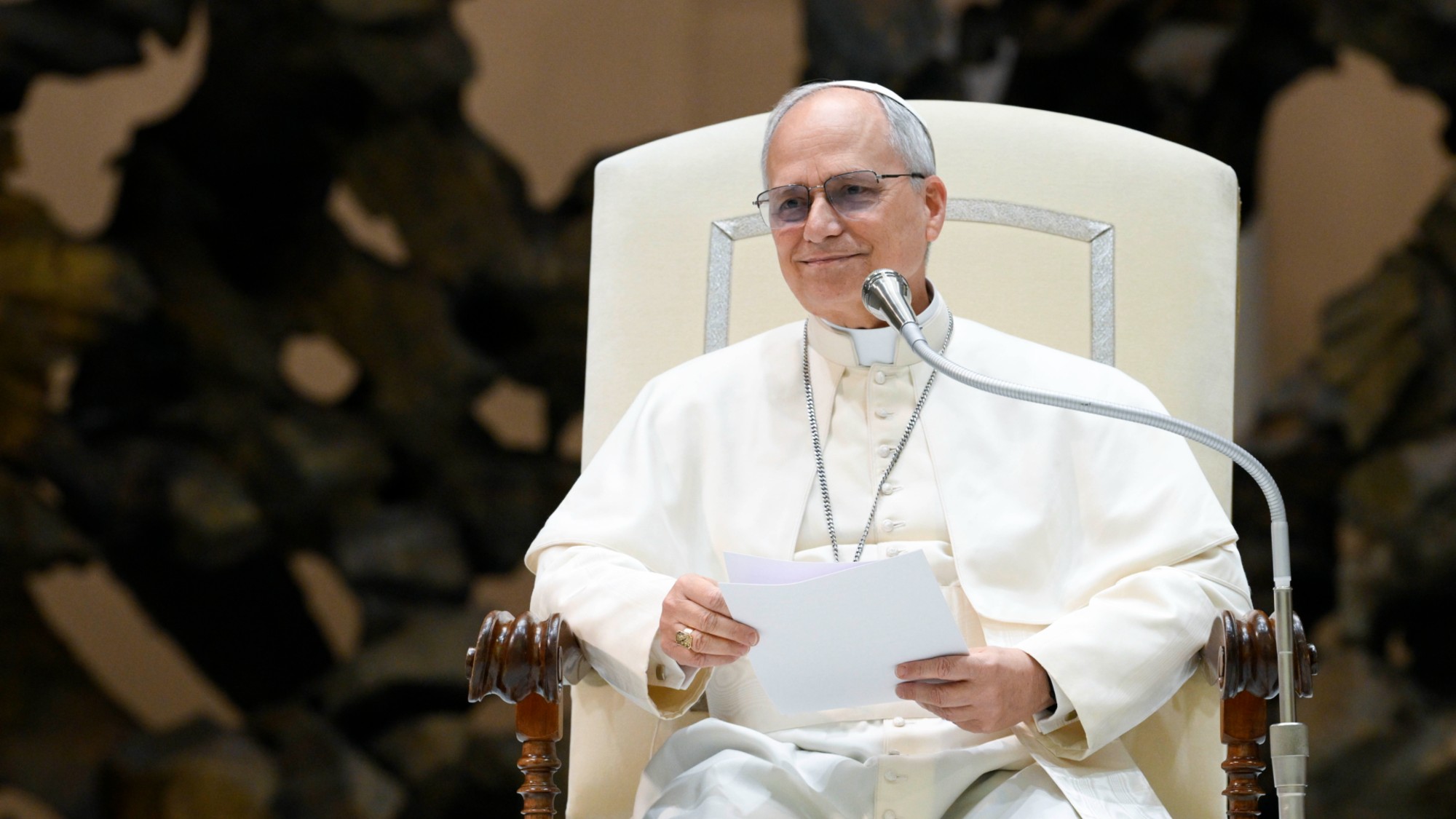 Where the new Pope Leo XIV stands on social issues
Where the new Pope Leo XIV stands on social issuesThe Explainer The first American pontiff is expected to continue some of his predecessor's work
-
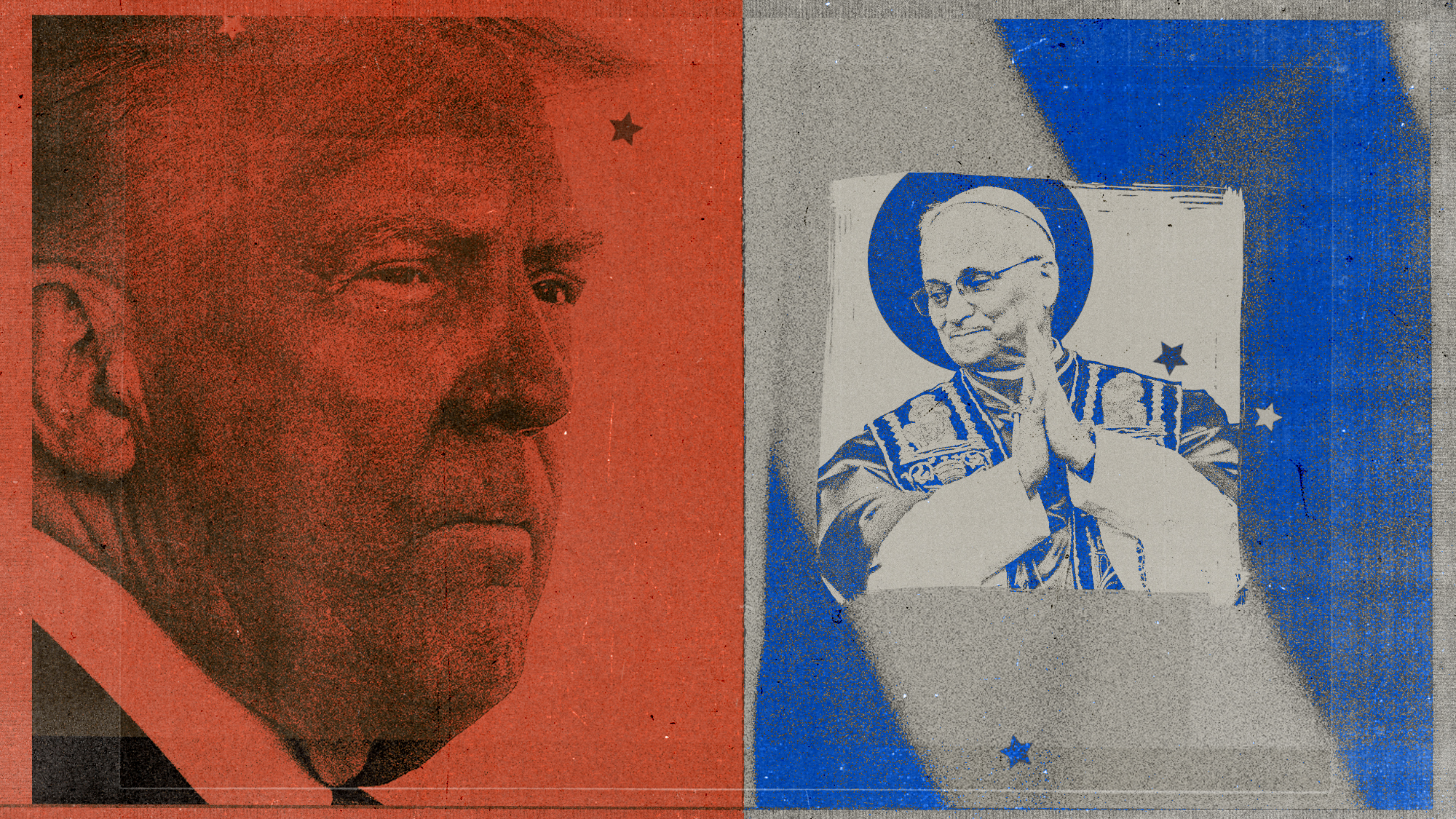 Leo XIV vs. Trump: what will first American Pope mean for US Catholics?
Leo XIV vs. Trump: what will first American Pope mean for US Catholics?Today's Big Question New pope has frequently criticised the president, especially on immigration policy, but is more socially conservative than his predecessor
-
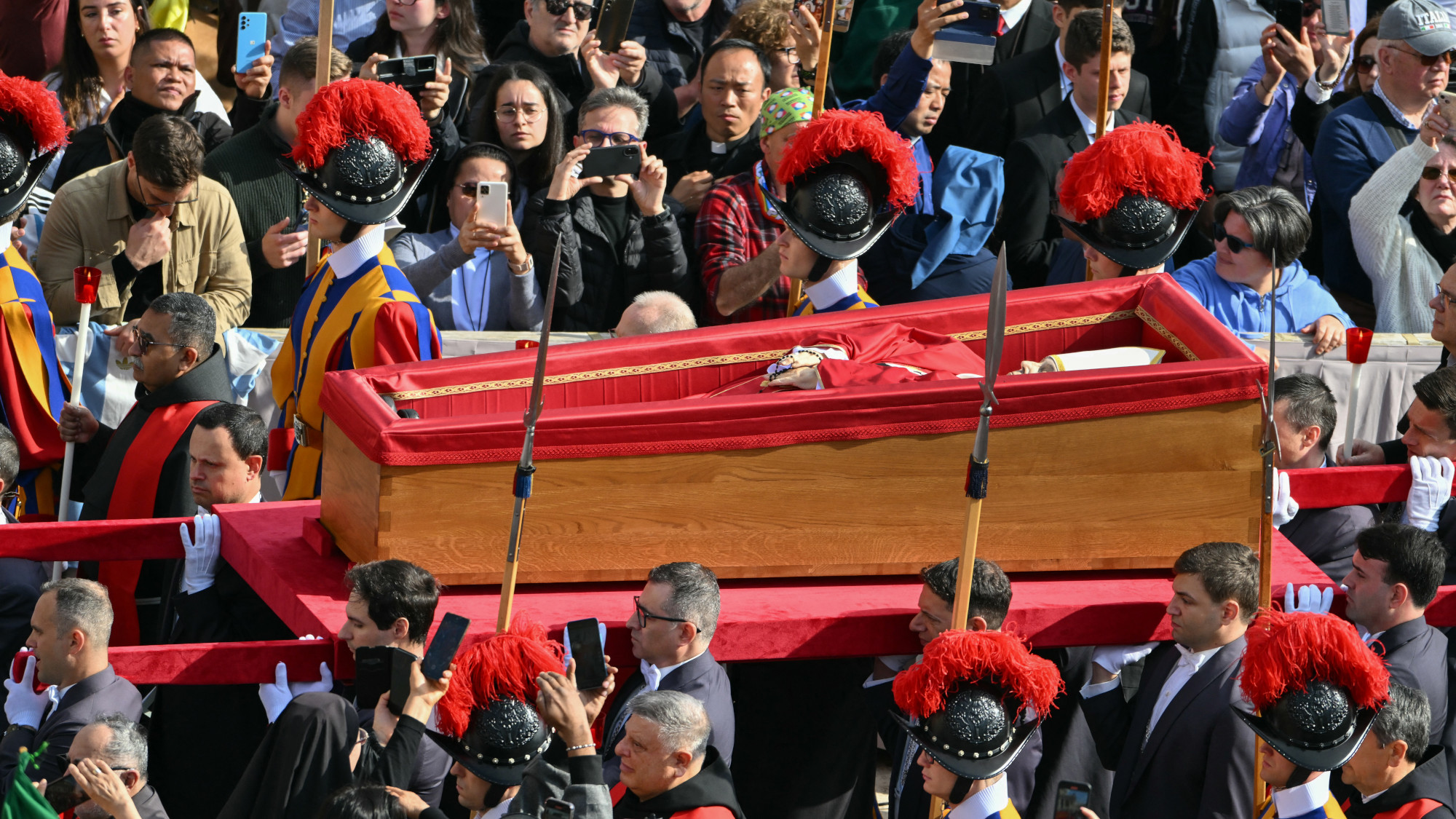 Millions mourn as Vatican prepares for transition
Millions mourn as Vatican prepares for transitionFeature Pope Francis, the pontiff who challenged tradition, leaves the Catholic Church at a crossroad to choose his successor
-
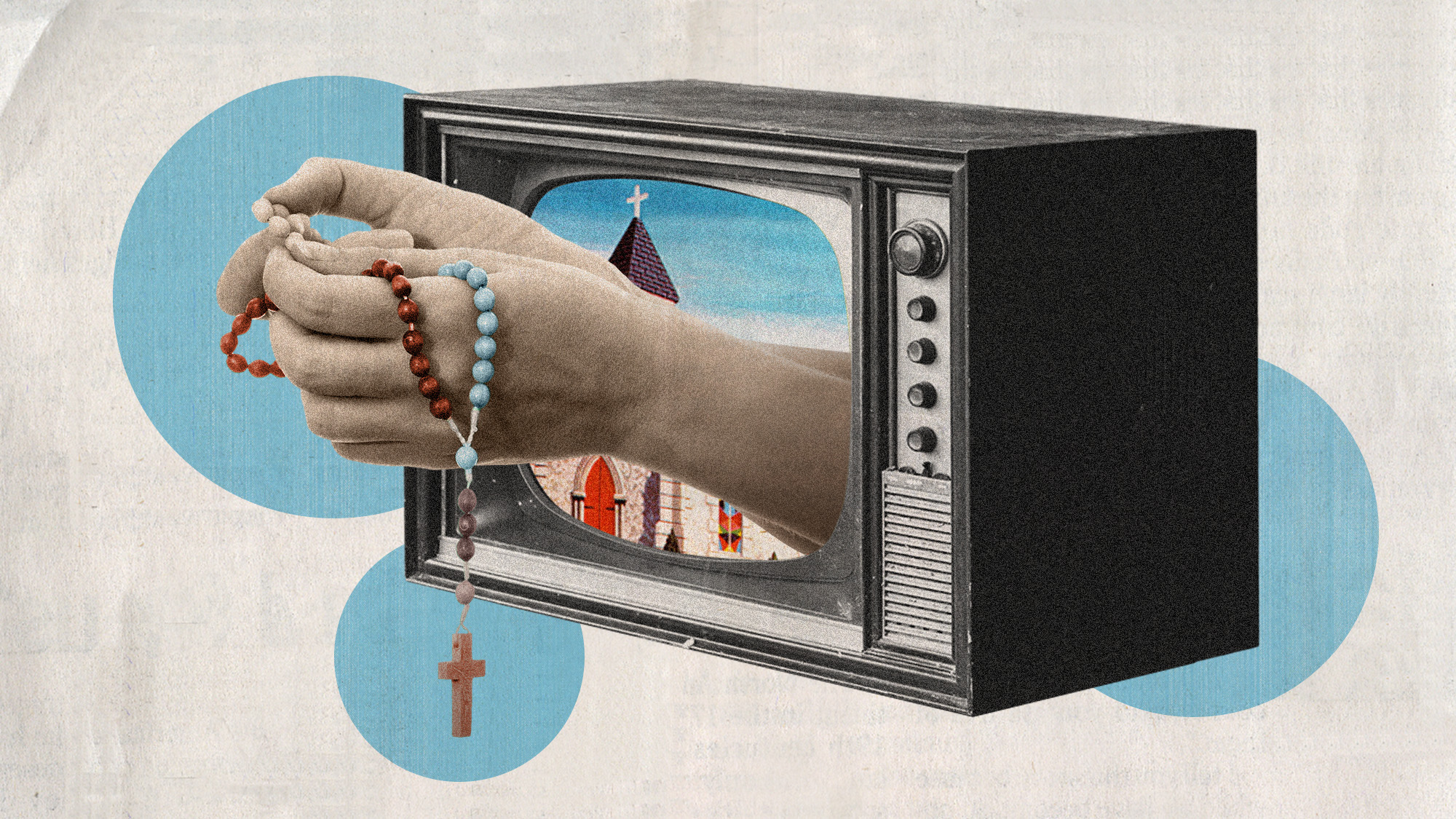 Christian dramas are having a moment
Christian dramas are having a momentUnder The Radar Biblical stories are being retold as 'bingeable' seven-season shows
-
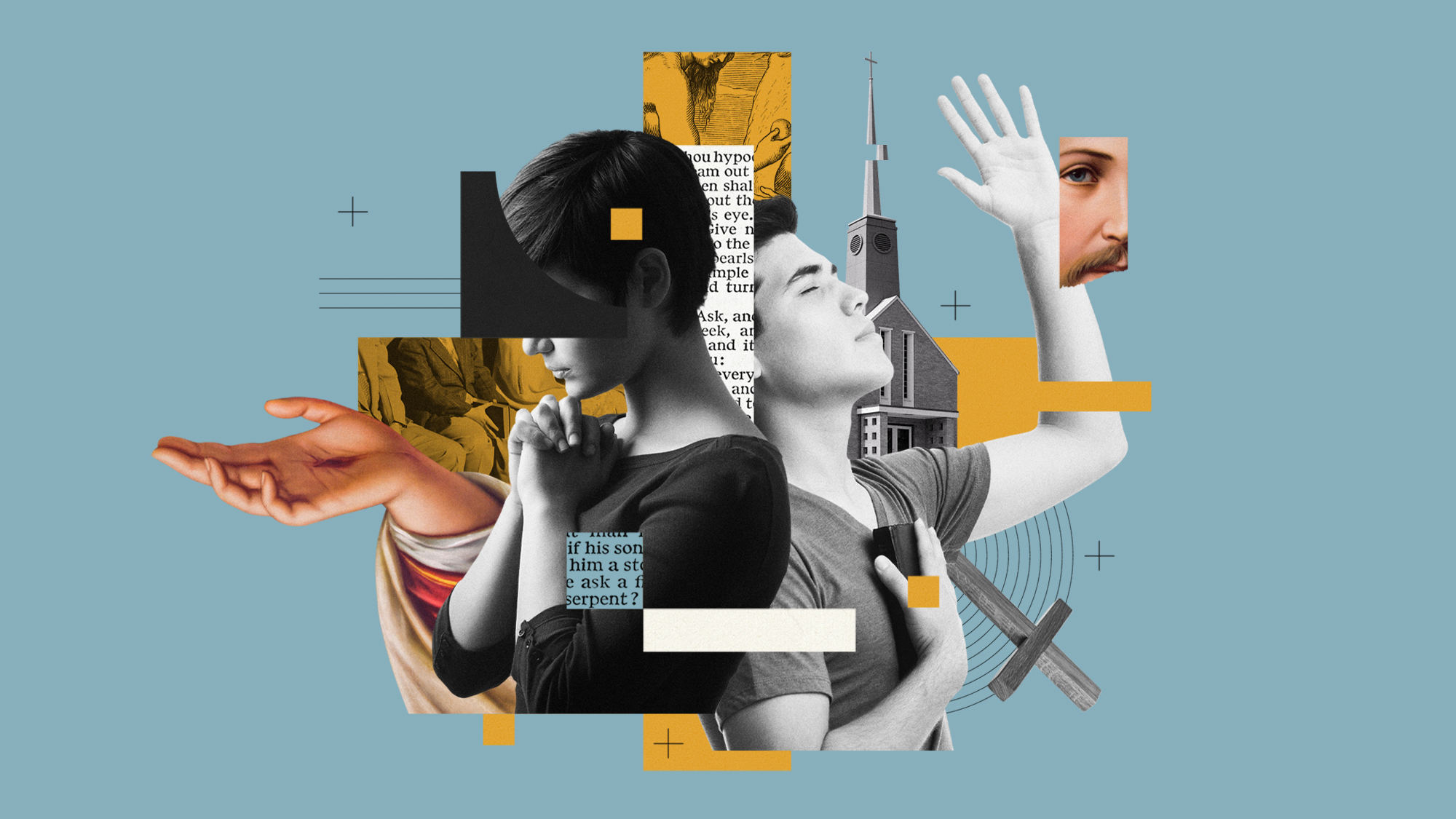 The young converts leading Catholicism's UK comeback
The young converts leading Catholicism's UK comebackIn the Spotlight Gen Z and younger millennials drawn to 'clarity and certainty' in an age of 'perma-conflict'
-
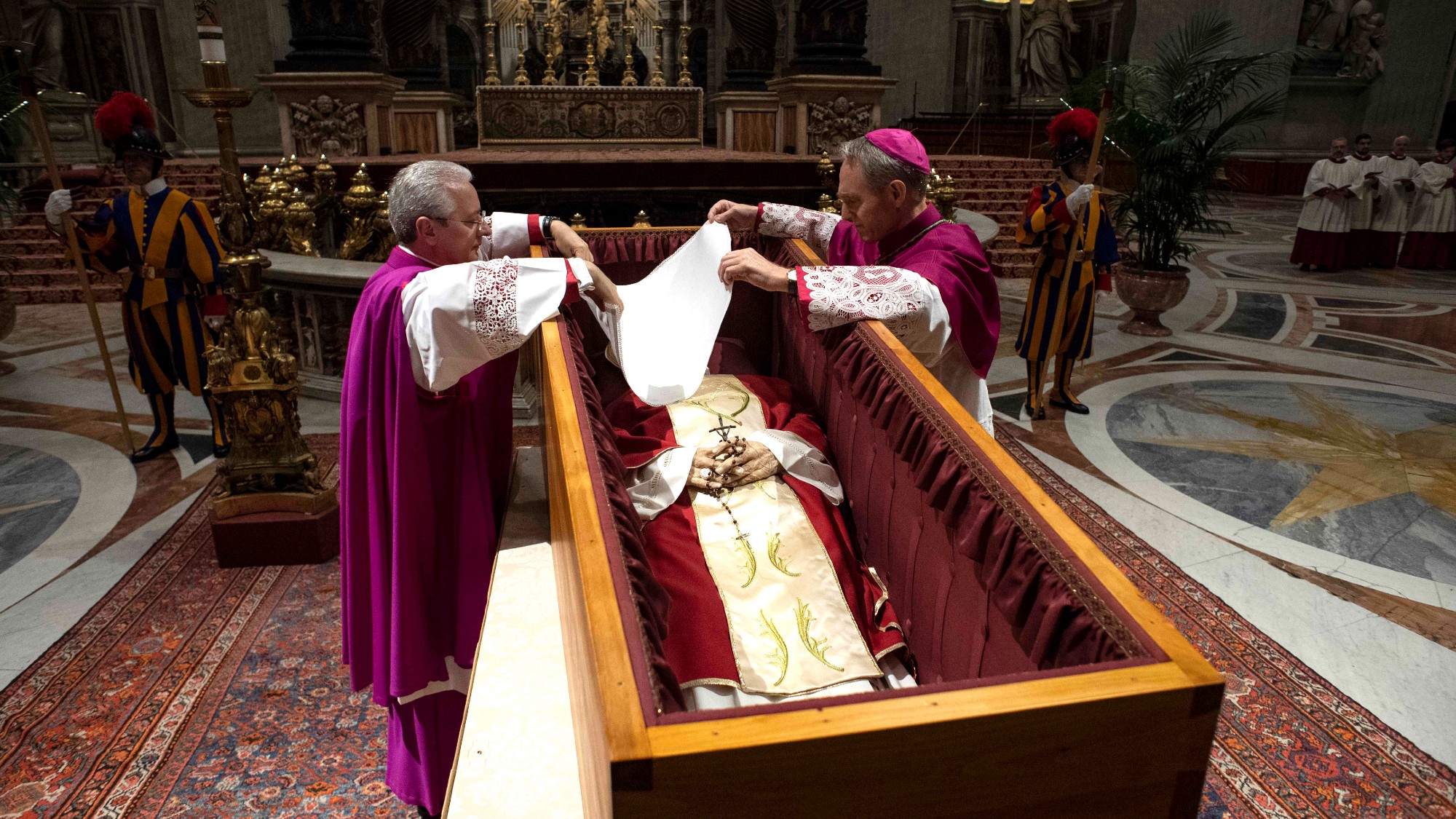 What happens when a pope dies?
What happens when a pope dies?In The Spotlight Vatican protocol on a pontiff's death is steeped in tradition and ritual
